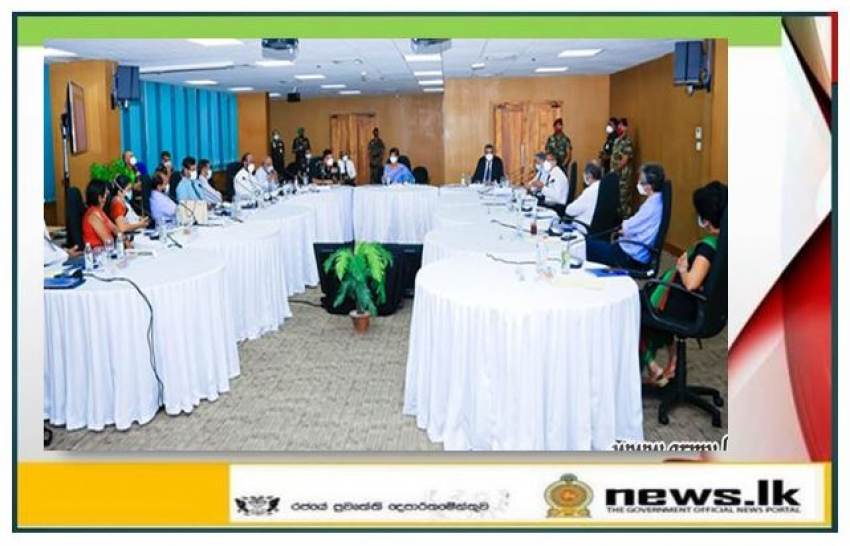During yesterday's discussions, current COVID-19 Prevention Strategies of Sri Lanka were reviewed in the light of the interim report, just released by the Independent Expert Panel appointed a few days ago by General Shavendra Silva to the same effect.
The discussion centred around the panel report, compiled on the basis of the process of review, observations and recommendations, proposed improvements to the existing overall strategy, country level coordination, planning, monitoring and integrated decision-making process, information and data management and its sharing, risks involved in communication, testing strategy, clinical management/ hospital resilience, consideration for the current vaccination strategy, etc.
The Panel conducted a series of consultations on a wide range of topics and issues, related to the COVID 19 response with delegates from relevant Directorates at Provincial and District levels and their technical heads, subject consultants in the Ministry of Health.
The proposed changes to the programme and strategies are based on four core concepts. It was suggested an integrated decision making mechanism and joint operation coordination with transparent vertical and lateral communication as the key for well-coordinated efficient pandemic control were to be established while ensuring minimal transmission among internal staff reaching new normal life across all sectors in a realistic manner.
Decisions on testing, contact tracing, isolation, quarantine, intermediate care and comprehensive clinical care need to be taken, based on the new evidence, ongoing location data analysis and global evidence synthesis, needed to be considered as an integral part of the control strategy.
Control and management strategies should always consider the predicted pandemic scenario of the country with possible resource limitations, specially in the face of serious potential threat for work force burnout.
The panel consisted of Dr Palitha Abeykoon, the special consultant on COVID 19 to WHO South East Area Region and Public Health Specialist, Professor Athula Sumathipala, Professor of Psychiatric school of medicine faculty & Health Science Keele University, UK/Chairman, national Institute of Fundamental studies Kandy, Dr Nihal Abeysinha, President College of community physicians Sri Lanka, Dr Ananda Wijewickrama, President, Ceylon College of Physicians, Professor Manuj Weerasingha, Professor Community Medicine Faculty of Medicine, University of Colombo, Dr Shirani Chandrasiri, Immediate past president college of Micro biologists, Professor Neelika Malavige, Professor in immunology & molecular medicine faculty of Medical sciences university of Sri Jayawardenapura, Professor Sunneth Agampodi, Professor of community medicine faculty of medical sciences Rajarata University and Colonel Dr Saveen Semage ,Consultant community physician, Deputy Director Army preventive Medicine and Mental health services.
The panel processed core issues emerging as significant components like country level coordination planning and monitoring, information, data management and sharing, surveillance, rapid response teams, testing strategy, clinical management, risk communications, vaccinations and their room out, point of entry Media and role of media, infodemic, front line staff burnout, mental health and wellbeing of the overall population, stigma, strategy for repatriation, issues of the education sector and issues of tourism sector.
This independent Panel of Executives was named through the NOCOPCO as per the letter, dated 25 January 2021 enabling them to revisit the "Currently Applied strategies", and also to assess the current situation and formulate recommendations for a way-forward strategy.
SL Army-




















